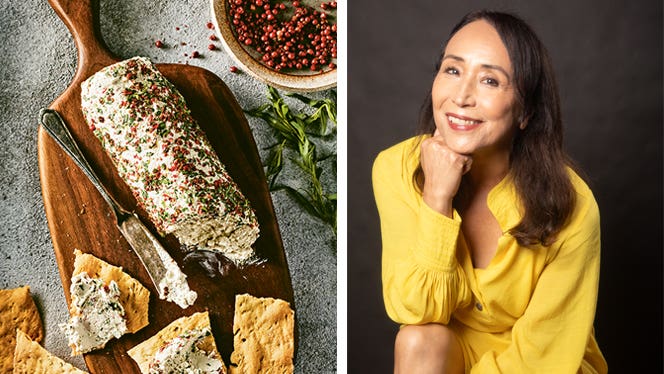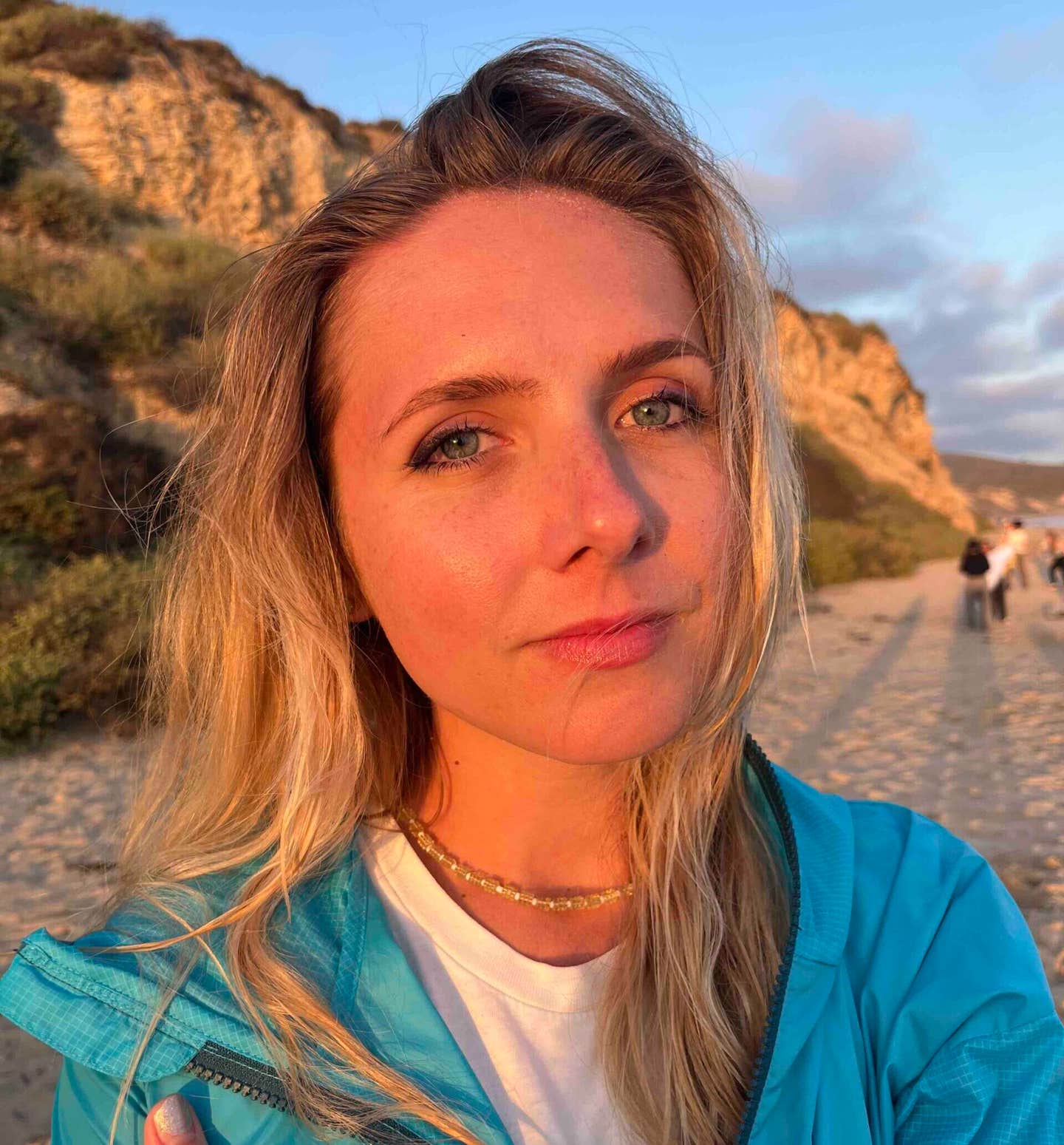
The Vegan Creamery: Miyoko Schinner’s Next Chapter in Plant-Based Dairy
By Courtney Davison,
Last Updated:Photo by Megan Thompson
In Brief
- Miyoko Schinner’s new cookbook The Vegan Creamery shares inventive plant-based dairy recipes using seeds, beans, and grains for rich textures.
- She opens up about her process and her hopes for the future of the vegan movement. Read on for the full conversation and to watch the interview video.
Miyoko Schinner’s work is never done. The pioneering chef, entrepreneur, and self-described “epicurean activist” has spent decades redefining what’s possible in the world of plant-based dairy. As the founder of Miyoko’s Creamery, she helped bring artisanal vegan cheese into the mainstream. Now, with her new cookbook, The Vegan Creamery (out September 16 from Ten Speed Press), Schinner is arming home cooks with the knowledge and meticulously tested recipes to craft next-level gourmet vegan cheeses, ice creams, and more.
Driven by an avant-garde spirit and scientific approach, Schinner makes brilliant use of unexpected ingredients—think pumpkin-seed Roquefort, mung-bean halloumi, and watermelon-seed milk—pushing beyond the usual cashew-based and oil-laden formulas. “None of the milk, sour creams, or even ice cream have any added oils, and I've tried to avoid them in the cheeses as well, unless a recipe just didn't work,” Schinner says.
Schinner recently spoke with us from her home in Marin County—which is also the site of Rancho Compasión, the farmed-animal sanctuary she co-founded in 2015—about what she’s learned since her groundbreaking 2012 book Artisan Vegan Cheese, the game-changing techniques behind her latest creations, and her vision for how crave-worthy vegan food can inspire lasting change.
What have you learned about vegan dairy since your 2012 book, artisan vegan cheese?
Miyoko Schinner: Cow’s milk is very different from sheep’s milk, which is very different from goat’s milk. In the same way, every single plant milk exhibits different properties and different nutritional profiles. Some plant milks coagulate; others don’t. Over time, I’ve learned how to work with these ingredients in order to express their best features in different plant-based dairy products, whether it’s milk or cheese or whatever. One of the milks that I’m most excited about is watermelon seed kernel milk, which is such a milky milk. It’s got a creamy body to it, and it’s high in protein. You can turn it into ice cream; you can turn it into cheese. There’s so many potential uses for it.
How did you discover that watermelon kernels made good plant milk?
Schinner: Just playing around. I mean, in exploring recipes for this book, I made milks from everything that I could possibly get my hands on. Even to this day, I’m like, “Well, why didn’t I use millet? I didn’t try millet!” So I’m still evolving my thinking.
Did you have any other game-changing discoveries?
Schinner: I was really hell-bent on finding a way to achieve a creamy mouthfeel for ice cream without adding oil. I came up with a way using cooked rice, which gets pureed with plant milk. It adds body and creaminess and prevents a lot of crystallization as well. Also, I wanted to honor cheese-making traditions, more than simply by fermenting the plant milks. I wanted to see if I could make a cheese that would start from making actual curds, where you start with a [plant] milk, then coagulate the proteins, separate the whey, and press the curds. I have a blue cheese recipe that [uses pumpkin seed milk] to get these nice large curds, like dairy cheese. Techniques like that are, I believe, different and new.
The vegan creamery feels as much like a compendium of your vegan cheese-making knowledge as it does a cookbook.
Schinner: That’s exactly the purpose. I think we’re in an age where everyone is trying to make a buck by starting a business. ... I really believe in the democratization of knowledge, of sharing my IP, and I am really proud that my cookbook [Artisan Vegan Cheese] helped other vegan cheese makers get started and help advance the movement. And I’m hoping that The Vegan Creamery is the book that launches 10,000 vegan cheese makers.
How do you hope your work shifts perceptions of dairy?
Schinner: Unbeknownst to most people, all dairy cows, by the time they’re 4 to 6 years old, when their milk production goes down, get sold off to the meat industry. So milk is meat. It’s the same thing. The majority of cows in this country are dairy cows; they take up about 50% of all land mass. It is a completely unsustainable industry, not only for the animals, but for the environment. So we really do need to reduce the consumption of dairy and meat. And luckily, there are so many ways of doing that right now.
What would you like to see from the vegan movement?
Schinner: I think we have to change the culture, to create a more inclusive community, to invite people into the fold by preparing delicious, colorful, vibrant dishes, showing how we’re helping to restore soil health, biodiversity, etc. I encourage vegans to cook real food and start inviting neighbors to share in it. That opens up conversation, and it opens up hearts. It may not work the first time, but I have friends that I had known for 15 or 20 years, and then one day they came to me and said, “I finally get it. I’ve gone vegan.” We need to become the Italy of activism—the place that everybody wants to go because it’s just a beautiful lifestyle, because the food is so delicious, because it’s crave-worthy. When people see it and think, Oh, my God, I can eat like that?! That’s when you make an impact.

About the Author

About the Author
Courtney Davison
Join our mailing list
Get free recipes and the latest info on living a happy, healthy plant-based lifestyle.
By providing your email address, you consent to receive newsletter emails from Forks Over Knives. We value your privacy and will keep your email address safe. You may unsubscribe from our emails at any time.